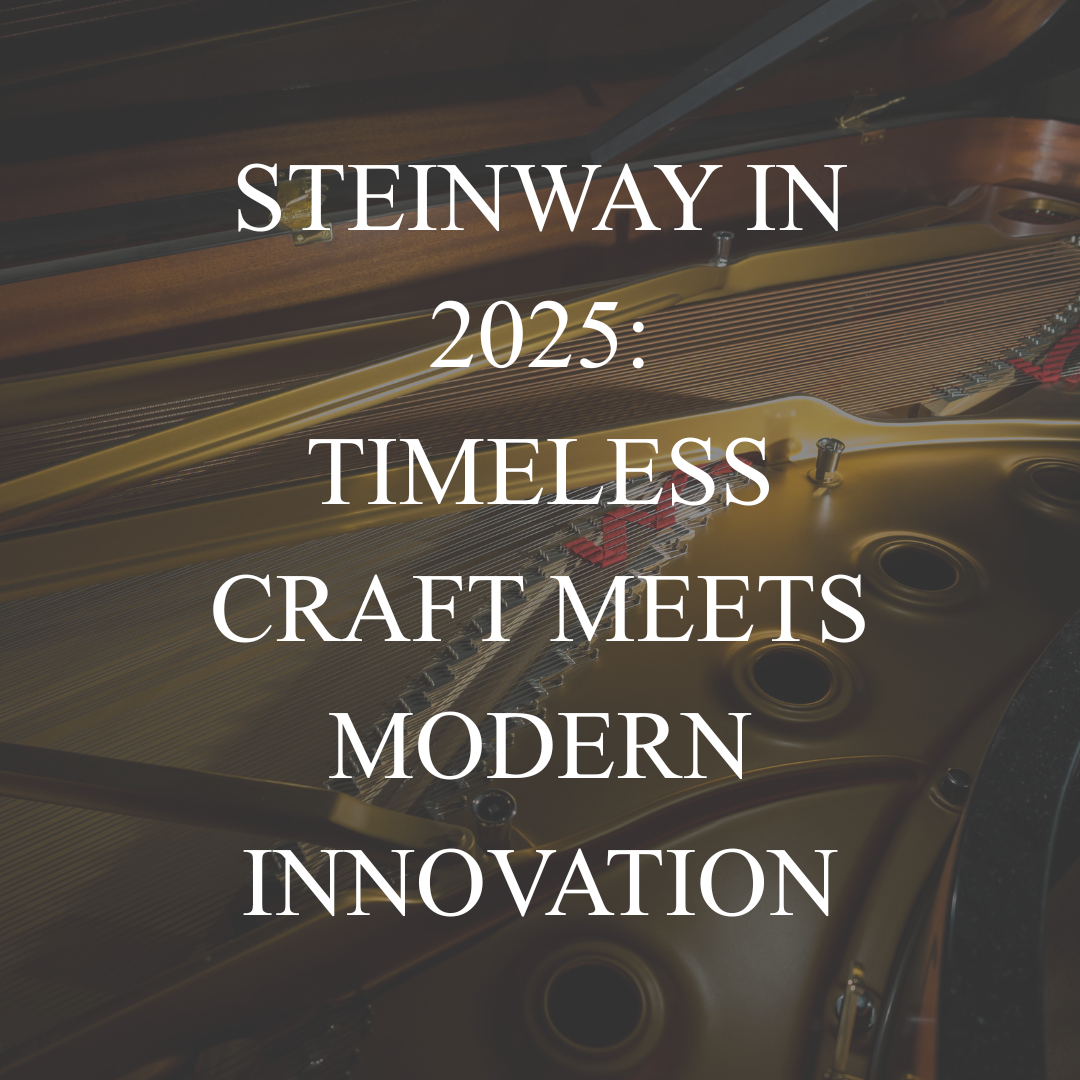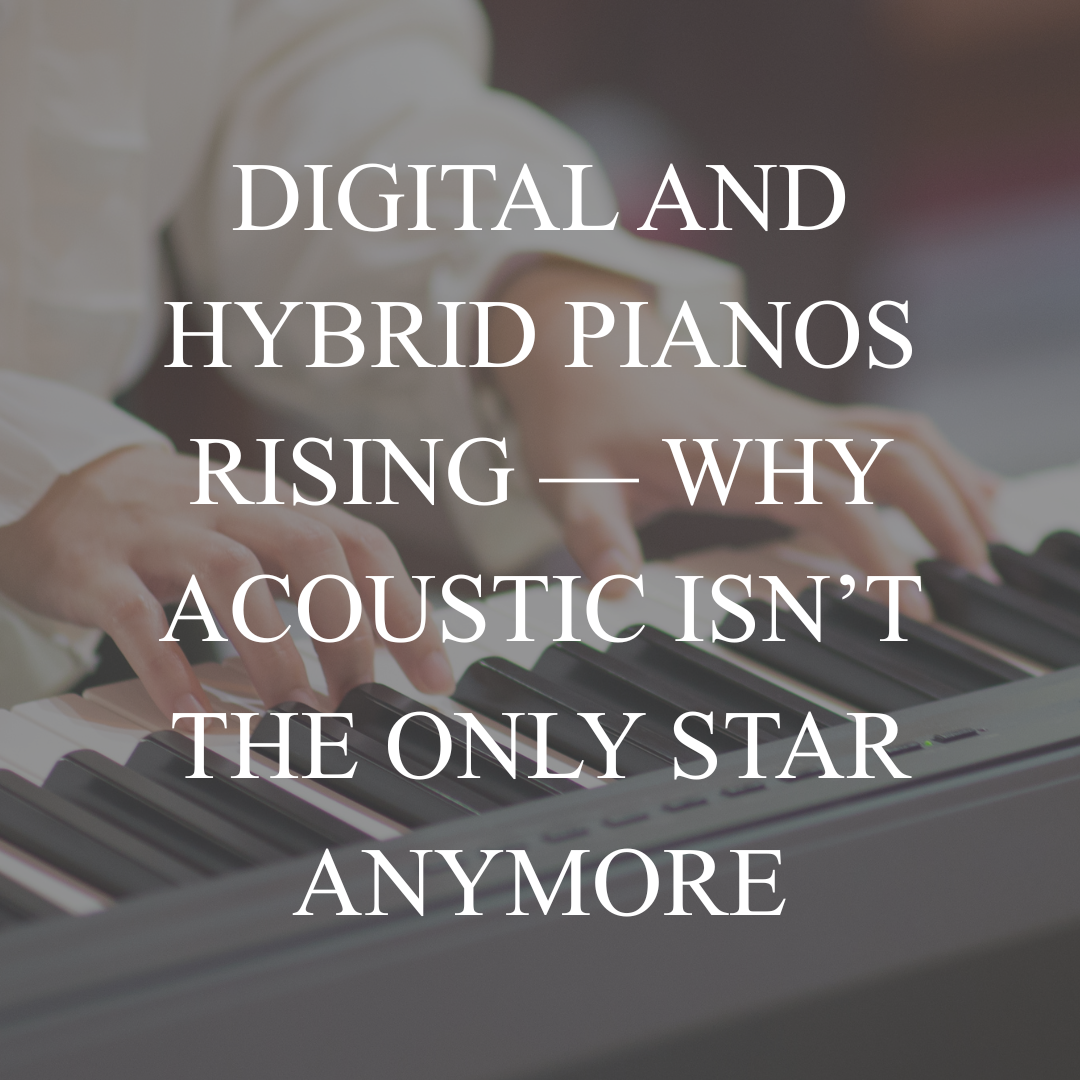
Sound quality matters, but how a piano feels matters just as much. Key weight, action responsiveness, and balance across the keyboard all influence whether players enjoy sitting down to practice.

A piano is not a short-term purchase. Unlike many instruments that are replaced or upgraded frequently, a piano is designed to remain in use for decades. This makes ownership a long-term relationship rather than a transaction.

First-time piano buyers often feel pressure to make a “perfect” decision. Brand names, online opinions, and price ranges can quickly complicate what should be an exciting step.

Buying a piano today is no longer a simple acoustic-only decision. Digital pianos have become a serious option for many players, and understanding the strengths of each type helps buyers avoid regret later on.

There’s a subtle shift that happens in homes as we move from the rich tones of autumn into the sparkle of December. Your piano space doesn’t have to stay static—it can evolve with the season.

For many pianists—beginner, intermediate or advanced—the holiday season brings a mix of joy and pressure: guests come, schedules shift, practice time can drop. But with a little intentionality, you can use this period as a springboard rather than a pitfall.

When it comes to selecting, caring for, or upgrading a piano, brand heritage and construction quality play a huge role. Here we take a look at two major names in the field: Yamaha and Hailun.

As December approaches and the holiday calendar fills up with performances, guests, and perhaps family making music, it’s the perfect time to give your piano a little attention. A well-tuned and well-maintained instrument means fewer distractions and more enjoyment.

As the leaves settle and we move into November, many of us begin the transition from everyday routines into holiday-anticipation. For those of us with a piano in the home, the instrument isn’t just furniture—it becomes a part of the family narrative.

Every four years, Warsaw becomes the luminous heart of the classical piano world. The International Chopin Competition is more than a contest — it’s a global ritual of artistry and endurance. For pianists, it is the Mount Everest of performance; for listeners, it is two weeks of breathtaking musical devotion.
But while the audience follows the fate of each pianist, another drama unfolds behind the music — a quieter rivalry that has nothing to do with interpretation or emotion, and everything to do with sound.
Because in Warsaw, the pianists are not the only ones competing. The pianos themselves are.

For more than a century, Steinway & Sons has defined what it means to build a truly exceptional piano. But in 2025, the brand isn’t just honoring tradition — it’s evolving. At Northwest Pianos, we continue to see how Steinway’s balance of craftsmanship and technology keeps it ahead of the curve in a fast-changing industry.

Over the last few years, acoustic pianos have held the prestige. But the tide is shifting. More musicians, educators, and beginners are turning to digital and hybrid models for their flexibility, technological perks, and lower maintenance demands. According to industry reports, the global piano market is now incorporating “smart integration” and “compact designs” as key drivers for growth. The Business Research Company+2PR Newswire+2